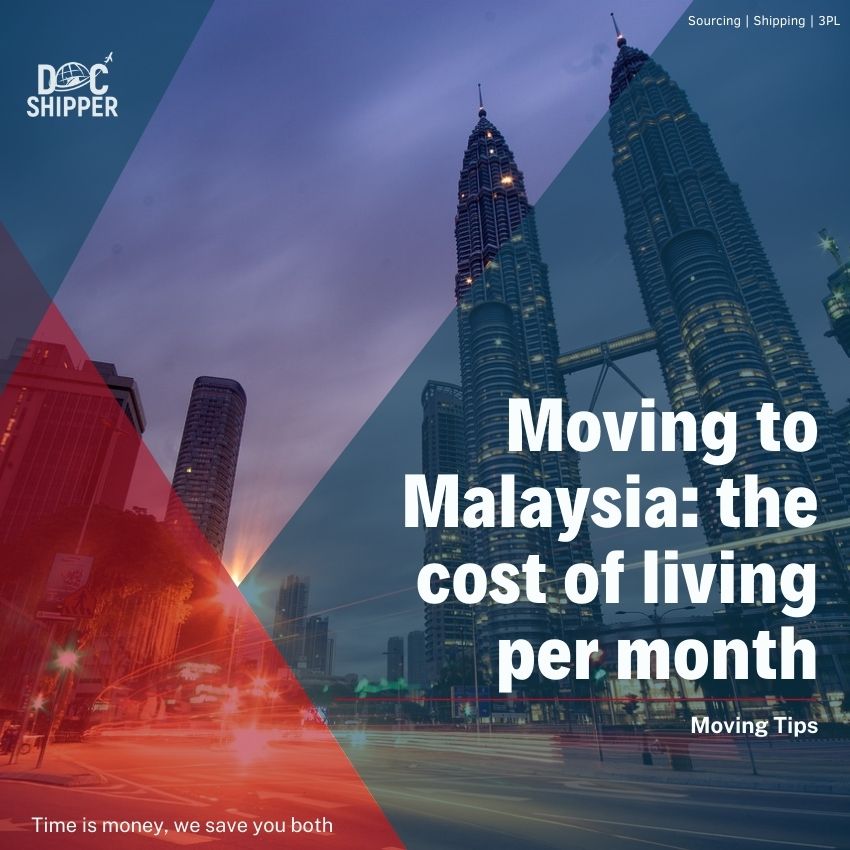Asia is home to a wide range of economic diversity and significant differences in the cost of living. This article aims to explore the 7 most expensive Asian countries to live in, both for local residents and expatriates.
The cost of living varies greatly across Asia, with certain countries known for their high prices in areas such as housing, transportation, food, and services.
It is important to note that the rankings and costs may vary over time due to economic fluctuations and changes in living standards.
Through this exploration, individuals can make informed decisions about where to live, work, or travel in Asia, taking into account their financial capabilities and desired lifestyle.
Context
Asia is the world's largest continent, home to a diverse population and a multitude of countries with varied economies. This economic diversity is reflected in the significant differences in the cost of living from one country to another in Asia. Some countries in the region are reputed to be among the most expensive in the world in terms of cost of living, while others offer a more affordable standard of living.
The cost of living in Asia is influenced by a number of factors, including the level of economic development, political stability, income levels, tax policies, infrastructure, geographical conditions, and government policies. These factors can have a significant impact on the prices of goods and services, including housing, transport, food, healthcare, education, leisure, and other living expenses.
Asia's major cities, particularly major economic centres such as Singapore, Hong Kong, Tokyo, and Seoul, are often known as expensive destinations due to high property prices, high-end services, and high living standards. However, it should be noted that the cost of living can also vary considerably within the same country, with marked differences between urban and rural areas.
Knowledge of the cost of living in different Asian countries is of vital importance to individuals considering moving to, working in, or travelling in Asia. Understanding cost differences between countries can help expatriates negotiate fair wages, travellers plan their budgets and entrepreneurs assess business opportunities. It is essential to consider the cost of living when making decisions about geographic mobility, expatriation, or investment in Asia.
By analysing the 10 most expensive Asian countries in which to live, we can gain insight into the general cost of living trends in the region and help individuals make informed decisions based on their needs, preferences, and financial resources.
Move with peace of mind with SIAM. We take care of all the logistics, from transporting your belongings to managing customs formalities. Trust us for a worry-free move.
Criteria
The rating criteria used to assess the most expensive Asian countries to live in include the following in most studies:
- Housing costs: The price of rents, houses, and flats in the country's main cities or regions.
- Cost of consumer goods: Prices of food, household goods, clothing, electronics, etc.
- Cost of transport: Fares for public transport, taxis, fuel, vehicles, etc.
- Cost of services: Prices of medical services, education, leisure, communications, etc.
- Tax levels: Income tax, value-added tax (VAT), customs duties, etc.
- Wage levels: The country's average income, employment opportunities, and social benefits.
- Cost of living index: International indices that assess the cost of living by comparing the prices of goods and services between different countries.
- Quality of life assessment: Factors such as security, political stability, quality of infrastructure, health services, education, natural environment, etc.
The list of the top 7 costliest Asian countries to reside in.
The cost of living varies considerably across Asia, and some countries stand out for their high level of spending.
Here's a look at the 7 Asian countries where living is generally considered the most expensive:
Singapore
- Housing costs: Whether you rent or buy a home, your biggest expense will be housing. You should budget at least $700 to $3,500 a month if you rent, and $1,500 to $6,000 a month if you are a Singaporean/RP buying a house and eligible to buy a flat.
- Consumer costs: Food, household goods, and clothing can be expensive. Singapore's CPI consumer price index rose to 112.70 points in April from 112.60 points in March 2023.
- Cost of transport: Singapore has one of the best and least expensive public transportation systems in the world. The average price for a one-way bus fare is about S$1.60. Unless you have quite a bit of disposable income, buying a car in Singapore isn’t a very good idea. They’re famously expensive here and will set you back an extra $2,000 to $3,000 a month for car loan instalments, insurance, petrol, parking, and maintenance.
- Cost of services: Medical services, education, and leisure are also expensive. Foreigners can get ex-pat health insurance with premiums starting from about $550/year in their 30s, increasing with age and if they have pre-existing medical conditions.
- Tax levels: Non-resident individuals are taxed at a flat rate of 22% (24% from the year of assessment 2024), except that employment income is taxed at a flat rate of 15% or at resident rates with personal reliefs, whichever yields a higher tax.
- Salary levels: The average salary in Singapore in 2023 is around S$70,000. Full-time workers in Singapore on average make S$5,783 a month, equating to S$69,396 a year.
- Cost of living index: Singapore is regularly ranked as one of the world's most expensive cities in international indices. In 2022, it was ranked 32nd in the world with a cost index of 72.1.
- Quality of life rating: Singapore offers a good quality of life, with modern infrastructure, a high-quality healthcare system, and high security. Singapore ranks third in the Urban Quality of Life Index 2021. It is one of the best in the index, having ranked in the top 10 every year since 2018.
Hong Kong
- Housing costs: Rents in Hong Kong are among the highest in the world. In 2021, the average price of permanent housing in Hong Kong Island exceeded 186 thousand Hong Kong dollars per square meter on average. The city had the highest property prices in the region.
- Cost of consumer goods: The Consumer Price Index CPI in Hong Kong increased to 105.20 points in April from 105 points in March 2023.
- Cost of transport: The price of a Monthly ticket for public transport in Hong Kong is HK$484 (≈62 dollars). This average is based on 8 price points. It can be considered reliable and accurate. Driving in Hong Kong is a real Chinese headache, and we advise against it. Renting a car is pointless. Fall back on public transport (MTR, bus, tram), which works well. They are punctual, fast, and inexpensive.
- Cost of services: Medical services, education, and leisure can be expensive. Cost is very high for general heath care, doctor visits, hospital stays, non-prescription medicine, and medical insurance. Average healthcare cost for a private practice Doctor visit for an uninsured patient is USD$81, and a private hospital stay per day including nursing care, medications, diagnostic tests, food, and related costs is USD$2,501.
- Tax levels: Hong Kong has a favorable tax system with relatively low-income tax. Hong Kong has a world-class corporate and financial sector as is a prestigious and well-regarded tax haven with strong corporate laws, wide-ranging investment opportunities with a company formation market that is among the world's most renowned markets for non-resident business incorporation.
- Salary levels: Average salaries are generally high, but the high cost of living can affect purchasing power. The average annual salary in Hong Kong SAR in 2023 is above HK$435,000. Full-time workers in Hong Kong SAR on average make HK$36,583.33 a month, equating to HK$439,000 a year.
- Cost of living index: The cost of living for expatriates in Hong Kong as of April 2023 is very high in comparison to other places in the world, with an overall Cost of Living Index (COLI) of 123.08 (New York =100).
- Quality of life rating: Hong Kong ranks 46th out of 50 cities in the Expat City Ranking 2022. It is the city where expats are overall unhappiest with their life abroad: 32% are generally unhappy, compared to 13% globally. One reason for this could be the low Quality of Life, with Hong Kong ranking 46th in this index.
Japan
- Housing costs: Japan is notorious for its high cost of living, particularly in Tokyo, which features every year in the list of the ten most expensive cities in the world. Rent tends to account for a large proportion of the cost of living in Japan, although it can vary from tiny, cheap flats of around 10 square metres to exorbitantly expensive luxury flats in the most sought-after areas. Outside central Tokyo, housing costs are significantly lower, particularly in the suburbs, surrounding prefectures, and other regions and cities of Japan.
The average monthly rent nationwide, excluding utilities, for a one-room flat (20 to 40 square metres) is between 50,000 and 70,000 yen. Rents for similar-sized flats in central Tokyo and nearby working-class districts generally start at around ¥100,000.
- Cost of consumer goods: Japan's all-items index of consumer prices in 2022 was 102.3 (2020=100), up 2.5% from the previous year.
- Cost of transport: Commuters can buy train passes for an unlimited number of journeys between their home and office/school for one or more months.
Cycling is a very economical way to get around, especially if you live in the city. There are cycle parks near most stations and shopping centres.
Taxis can be found in almost every city near train stations and may be the only way to get around once the trains and buses stop at around midnight. They can also be an economical option over shorter distances if you are travelling in a group of three or four people.
Owning a car in Japan is relatively expensive due to compulsory six-monthly checks (shaken), compulsory insurance, a car tax, and the fee for a parking space (in major cities). The cars themselves, however, are relatively inexpensive, with smaller new cars starting at around 1.3 million yen (≈9200 dollars).
- Cost of services: Medical services, education, and leisure tend to be expensive. The cost of healthcare in Japan will vary according to the medical treatment required, the time spent in a doctor's surgery and the type of doctor you see (general practitioner or specialist). However, in general, if you have health insurance, you can expect to pay between 5,000 and 10,000 JPY (45 and 90 USD) for a consultation in a clinic and 10,000 and 15,000 JPY (90 and 140 USD) in a hospital. Without insurance, these costs will rise to JPY 20-50,000 (USD 180-460). Follow-up appointments should cost less.
- Tax levels: Japan has a low VAT rate of 10 percent. The consumption tax base is relatively broad, covering 65 percent of consumption. Japan's personal income tax rate on dividends is 20.3 percent, below the OECD average of 24.2 percent.
- Salary levels: The average monthly salary for employees in Japan can range from approximately 130,000 JPY (958 USD) to 2,300,000 JPY (16,944 USD).
- Cost of living index: The cost of living in Japan is 1.23 times more expensive than the world average. Japan ranked 24th out of 197 countries in terms of cost of living, with 89.8 on the cost index.
- Quality of life rating: Japan is the 11th best country in which to live. However, when asked to rate their general satisfaction with life on a scale of 0 to 10, the Japanese gave it an average score of 6.1, below the OECD average of 6.7.
South Korea
- Housing costs: Most people live in small flats, and a one-room flat can cost you anywhere from 300,000 won ($265.60) a month to over a million won a month, depending on the location of the flat (Gangnam being one of the most expensive). ), the facilities and whether it is a new or old building.
The average cost of living in Seoul for one person is 1,600,000 won ($1,411). Seoul is one of the 30% most expensive cities in the world.
- Cost of consumer goods: In 2022, the consumer price index (CPI) in South Korea was 107.7 points. The base year was defined as 2020=100. It has increased sharply compared tp the previous year at around 102.5 index points.
- Cost of transport: The standard bus or metro journey will cost between 1,250 ($1.11) and 2,000 ($1.77) won depending on the distance, and transfers between different types of transport are free. If you're travelling across the country, buses from Seoul to Busan often cost between 20,000 ($17.70) and 30,000 won ($26.60) one way depending on the type of coach you take. A KTX train will cost just over 50,000 won ($44.30) for the same journey. A taxi ride halfway across Seoul (say from Itaewon to Jamsil) usually costs around 15,000 won ($15.30). Taxi fares are more expensive after midnight.
- Cost of services: However, basic medical insurance does not cover everything. You will have to pay a small amount to see the doctor, have X-rays, etc. You will also have to pay a small amount to the pharmacy for your medicines. You'll also have to pay a small amount to the pharmacy for your medication. Each of these costs is generally between 5,000 won ($4.50) and 20,000 won ($17.70). Anything extra, such as MRIs or major operations, will see your medical bills start to rise quite quickly. If you suffer from a serious illness, this can be financially onerous. Comprehensive medical insurance (Allianz, etc.) can be purchased and usually costs between 100,000 ($88.55) and 200,000 won ($177.00) per month depending on the age and general state of health of the applicant.
- Tax levels: The tax wedge for the average single worker in Korea increased by 0.4 percentage points from 23.8% in 2021 to 24.2% in 2022. The OECD average tax wedge in 2022 was 34.6% (2021, 34.6%). In 2022, Korea had the 32nd lowest tax wedge among the 38 OECD member countries, occupying the same position in 2021.
- Salary levels: On average, South Korean salaries can range from about 983,000 KRW per month (USD 745) on the lower end to 17,400,000 KRW per month (USD 13,181) on the higher end.
- Cost of living index: South Korea is often ranked as a high-cost country in international indices. South Korea is ranked 30th in the world in the ranking of countries with the highest Cost index.
- Quality of life rating: Seoul is classified as a difficult location. The hardship allowance for Seoul for an expatriate from Perth, for example, is 10%, i.e. a host location allowance (Seoul) of 20% minus a home location allowance (Perth) of 10%. Quality of life index: 137.54 (moderate index)
Macau
- Housing Costs: Macau is known for having some of the highest property prices in the world. Prices are influenced by various factors such as the location, size, and amenities of the property, among others. As a potential buyer, it's important to do your research and work with a reputable real estate agent to ensure you get the best deal possible.
Price per m 2 to Buy City Centre (Flat):
$13.491,58
Price per m 2 to buy a flat outside the city centre:
$10.086,78
- Cost of Consumer Goods: The consumer Price Index CPI in Macau increased to 104.43 points in April from 104.28 points in March 2023.
- Transportation Costs: Getting around Macau can be fairly easy as there are various transport options available to visitors. Some of the popular modes of transport include taxis, buses, and the light rail system. Taxis are plentiful and easy to hail, while the bus system offers affordable fares and extensive coverage across the city. For those who prefer a more environmentally-friendly option, the light rail system is an excellent choice. It connects different parts of the city and offers visitors a breathtaking view of Macau's cityscape. Another alternative transport option in Macau is cycling.
Some examples of transport fares:
- Single ticket, local transport is $0.75
- Monthly pass, regular price is $35.06
- Taxi departure, the regular fare is $2.38
- Taxi, price for 1 km, Regular fare is $1.04
- Service Costs: The cost is high for general healthcare, visits to the doctor, hospital stays, non-prescription drugs, and medical insurance. A shopping basket costing USD 1,000 in New York costs USD 950. The average cost of healthcare for a visit to a doctor in private practice for an uninsured patient is USD 77, and a stay in a private hospital per day, including nursing care, drugs, diagnostic tests, food, and related costs, is USD 2,363.
- Tax Levels: Macau, known as the 'Las Vegas of Asia', is considered a tax haven for its advantageous tax structure for individuals and companies. Residents and non-residents alike benefit from ultra-low taxes levied on professional and business income. Property tax arises on the ownership of all residential, commercial, and industrial properties and depends on the highest rateable value or actual rental income. Rental income is taxed at 10% and a rate of 6% applies to the rateable value. Income tax is payable at a rate of 12%. Profits of less than 600,000 MÒR are not taxable.
- Salary Levels: Salaries in Macau are generally competitive, given the high cost of living, and the average wage is US$2,253.01.
- Cost of Living Index: A family of four estimated monthly cost is $3,562.8 (28,732.3P) without rent. In a single person, estimated monthly costs are $970.2 (7,824.2P) without rent. The cost of living in Macau (China) is, on average, 12.2% lower than in the United States.
- Quality of Life Assessment: Macau is a great place to move to, especially given its proximity to the Mainland and Hong Kong, which allows for easy exploration of Southeast Asia while living here. While the cost of living is less than in the US, it is still higher compared to other Asian countries.
Quality of Life Index: 136.77 (moderate index)
Taiwan
- Housing Costs: Average home prices last quarter topped NT$10 million (US$327,054) in Taiwan's major cities, despite a slowdown in transactions amid economic uncertainty.
- Cost of Consumer Goods: The Consumer Price Index CPI in Taiwan decreased to 105.04 points in May from 105.11 points in April 2023.
- Transportation Costs: Public transportation fares are reasonable, and owning a car is relatively expensive. Taxis around the city 10–15 minutes worth 3.2 - 4.2 USD = 100 - 130 TWD
Taxi to the hotel from Taipei airport (20-minute ride) 37.3 USD = 1,150 TWD
Taxi hire for the whole day (6 hours) for a tour of the Taroko Gorge 81.1 USD = 2,500 TWD
Bike hire is popular in Taiwan. Many natural attractions are equipped with cycle paths. Offer different levels of bikes with prices ranging from 6.5 to 32.5 USD = 200 to 1000 TWD per hour.
- Service Costs: Medical services, education, and leisure activities are generally accessible and reasonably priced. Taiwan's healthcare system offers Taiwanese and foreigners access to low-cost, high-quality healthcare. Co-payments for clinic and hospital visits range from NT$150 to NT$350 ($5 to $11). After that, monthly premiums are only NT$826 (depending on your situation). The government and the companies you work for will pay part of your health insurance. In most cases, citizens will only pay 30% of their premium. Taiwan ranked No. 13 in the FREOPP Global Healthcare Innovation Index 2021
- Tax Levels: While Taiwan has many tax categories, the Taiwan tax rate for ex-pats is lower than many countries in most categories. Moreover, Taiwan has a convenient system for foreign residents to pay taxes. The standard rate of VAT is 5%.
- Salary Levels: The average salary in Taiwan is approximately NT$677,000 (US$21,689) per year.
- Cost of Living Index: A family of four estimated monthly cost is $2,950.4 (90,837.0NT$) without rent. A single person, estimated monthly costs are $806.7 (24,838.2NT$) without rent. The cost of living in Taiwan is, on average, 27.3% lower than in the United States. Rent in Taiwan is, on average, 68.2% lower than in the United States.
- Quality of Life Assessment: Taiwan offers a good quality of life with a well-developed healthcare system, a high level of safety, and a rich cultural heritage. Taiwan does best in the Quality of Life Index (2nd), only beaten by Spain, and makes it into the top 10 for many related factors. The Health & Well-Being Subcategory is a particular highlight since Taiwan ranks first overall and first for all its factors.
Maldives
- Housing Costs: Accommodation prices in the Maldives can vary significantly depending on the island and resort, with luxury resorts being expensive. Rent can be a bit steep in the Maldives. But it all still depends on where you want to live. For a decent flat in most of the Maldives, you’ll need around $1000.
A one-bedroom flat in the city center costs around $886 approximately, while the same flat on the outskirts of town will cost you around $630.
- Cost of Consumer Goods: The Consumer Price Index CPI in the Maldives increased from 115.5 points in May to 115.8 points in April 2023.
- Transportation Costs: Domestic transportation within the Maldives, such as seaplane or speedboat transfers, can be expensive. The best way to get around the Maldives is to walk. The capital city of Malé is about 2.2 square miles, and whichever resort you pick will be walkable as well. Island-hopping at your own leisure really isn't the best option, since the ferry network is not very extensive.
- Service Costs: Services in the Maldives, including tourism-related activities, can be relatively costly.
- Tax Levels: The Maldives has a Goods and Services Tax (GST) of 12% on goods and services. The supply of goods and services in the Maldives is subject to a tax (GST) at the rate of 8% (with effect from 1 January 2023) on the value of goods and services. The supply of tourism goods and services is subject to a 16% tax (with effect from 1 January 2023) on the value of goods and services. Over 90% of government tax revenue comes from import duties and tourism-related taxes. The Maldives rate is 'high' on the Human Development Index, with per-capita income significantly higher than other SAARC nations.
- Salary Levels: Salaries in the Maldives can vary greatly depending on the industry, with tourism-related jobs offering competitive wages. A person working in the Maldives will typically earn around 228,000 MVR per year (≈$15000), and this can range from the lowest average salary of about 59,480 MVR (≈$3875) to the highest average salary of 1,023,000 MVR (≈$66500). These are average salaries for a person in the Maldives and include benefits such as housing and transport.
- Cost of Living Index: The Maldives is often considered to have a high cost of living, primarily due to its reliance on imported goods and services. The cost of living in the Maldives is $1222, which is 1.25 times more expensive than the world average. Maldives ranked 42nd out of 197 countries by cost of living. The average salary after taxes in the Maldives is $807, which is enough to cover living expenses for 0.7 months. A family of four estimated monthly costs is $2,788.2 (42,812.5Rf) without rent. A single person, estimated monthly costs are $812.4 (12,474.7Rf) without rent. The cost of living in the Maldives is, on average, 27.1% lower than in the United States. Rent in the Maldives is, on average, 45.7% lower than in the United States.
- Quality of Life Assessment: The Maldives offers a unique and luxurious lifestyle, with pristine beaches, natural beauty, and a focus on tourism and relaxation. Quality of Life Index: 94.54 (moderate index)
FAQ | 7 Most Expensive Asian Countries to Live In
Which is the most friendly Asian country in the world?
There isn't a definitive answer as friendliness is subjective, but several Asian countries are often praised for their welcoming and hospitable nature. Countries like Thailand, Japan, Taiwan, and the Philippines are often considered among the friendliest in Asia.
Which Asian country has the best quality of life?
Determining the country with the best quality of life in Asia can be subjective, as it depends on various factors and personal preferences. However, countries like Singapore, Japan, South Korea, and Hong Kong often rank high in terms of quality of life due to factors such as safety, healthcare, education, infrastructure, and economic stability.
Which Asian country stands out for providing a high quality of life and a favorable living environment?
Several Asian countries offer a high quality of life and favorable living environments. Countries like Singapore, Japan, Australia and South Korea are often recognized for their excellent infrastructure, healthcare systems, educational opportunities, and overall well-being.
Which Asian country offers a great balance between a high quality of life and a warm, welcoming atmosphere?
Again, this can be subjective, but countries like Malaysia, Thailand, Taiwan, and Vietnam are known for striking a balance between a high quality of life and a warm, welcoming atmosphere. These countries often offer affordable living costs, rich cultural experiences, beautiful landscapes, and friendly local communities.
DocShipper info: Do you like our article today? For your business interest, you may like the following useful articles :
SIAM Relocation - Best price moving company in Thailand !
Due to our attractive pricing, many customers trust our services and we thanks them. Stop to overpay the services and save money with our tailored package matching will all type of removals, from small volume to full house, let us find the best and cost-effective option.
Communication is important, which is why we strive to discuss in the most suitable way for you!

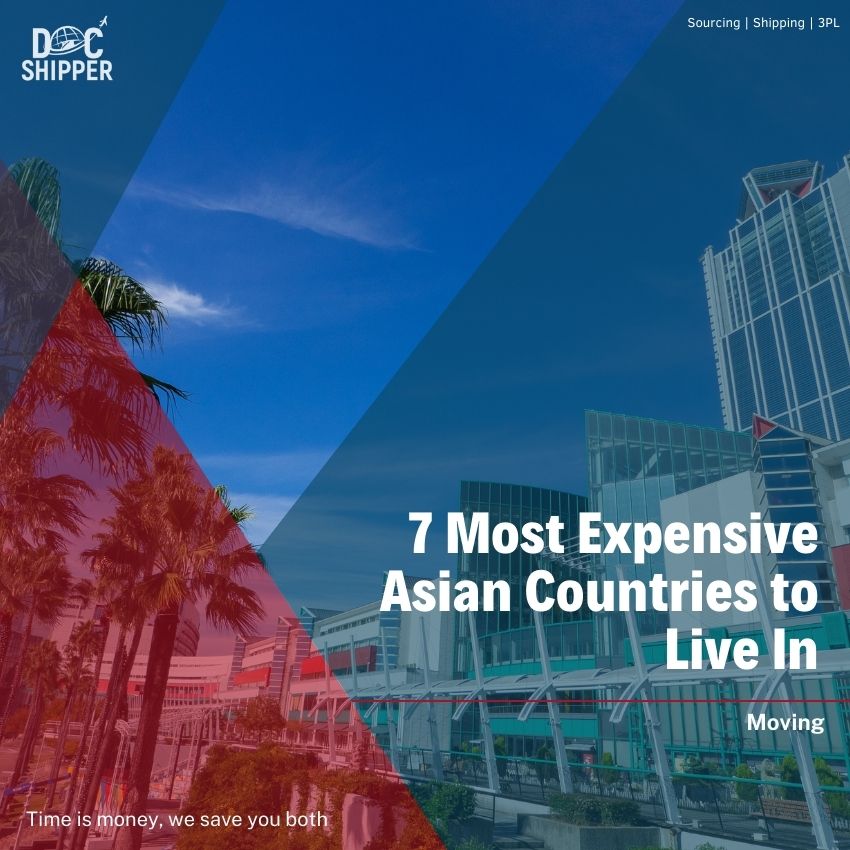
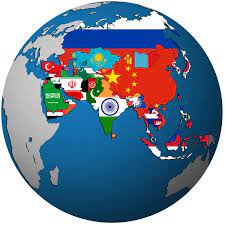
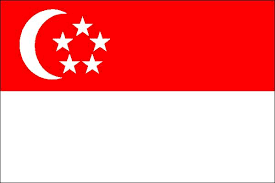

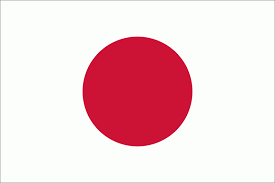








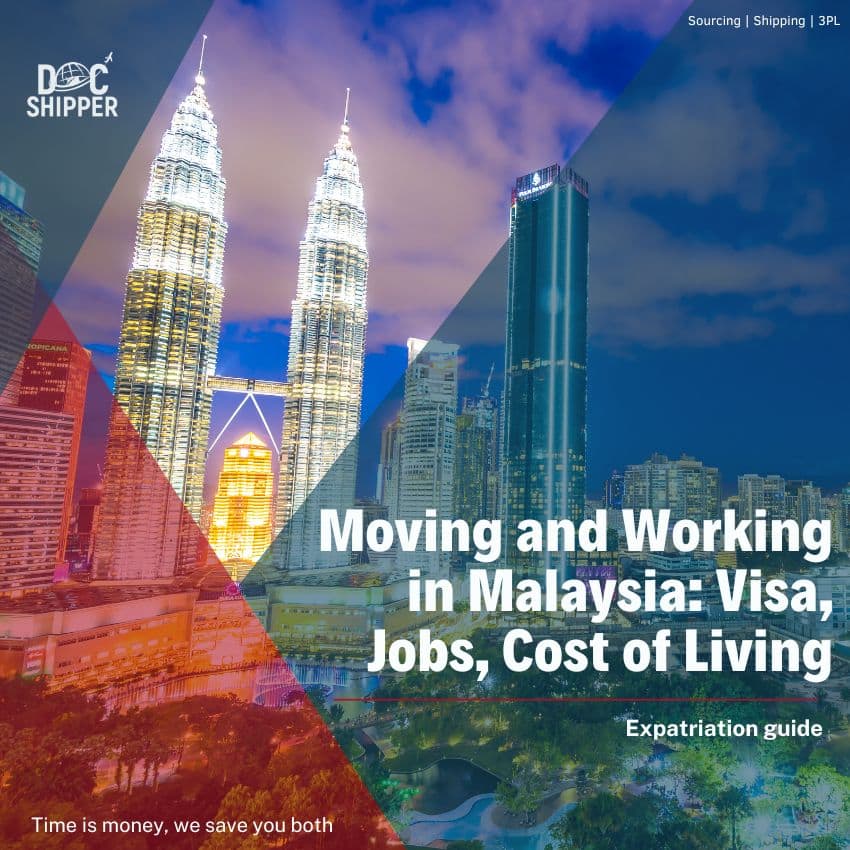


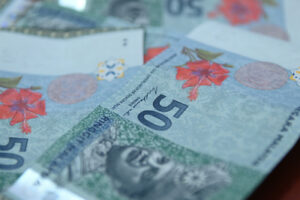
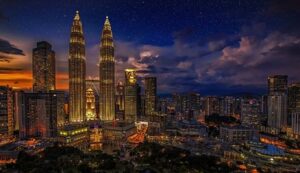 How would it be like to live in the
How would it be like to live in the  Although it's easier to get an
Although it's easier to get an 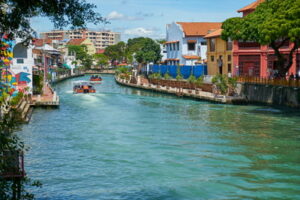
![Moving and Living in Bali [The Complete Guide]](https://siam-relocation.com/wp-content/uploads/2022/08/Feature-images-min.jpg)
